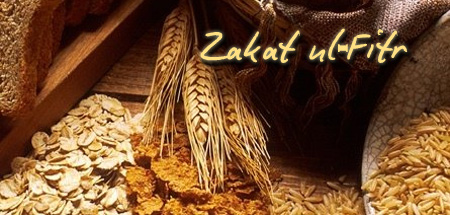
Page-1
|Page-2
|Page-4|Page-5|Page-6
|Page-7
|Page-8
|Page-9
|Page-10
| BaKhabar  Download pdf Download pdf
|
| OUR
JOURNEY TO THE DAY OF RESURRECTION, Part- XXII [Jannah, the Garden] - By Gheyas S Mahfoz
Hashmi, Jeddah (hgheyas@albatool.com.sa)
… Continued from
previous issuesUp to the last issue, Muslim’s journey in Aakhirah till entry to Jannah (Paradise) has been described step-by-step. Here is a concise description of Jannah, the final destination.
The literary meaning of Jannah is a garden where things are hidden. Jannah is gigantic beautiful garden, which will be a permanent dwelling place by Allah Almighty to those who are obedient to Him and His last Prophet (S). Quran is full of description of Jannah and things therein, particularly in last part of the Quran, i.e. those Chapters / verses that have ascended in Makkah.  Abu Hurayrah (R) reported that the Messenger of Allah (S) said,"Allah, the Exalted, has said: 'I have prepared for my righteous slaves what no eye has seen, no ear has heard, and the mind of no man has conceived.' If you wish, recite: 'No person knows what is kept hidden for them of joy as a reward for what they used to do.' [Al-Bukhari & Muslim, As-sajdah/17] Quran also names Jannah as Firdaws, Al-Salam, Al-Mawa, Al-Khuld, Al-Naim, etc. Jannah is above seven heavens, as if seven heavens are earth. As for its width Allah Almighty says: And vie one with another for forgiveness from your Lord, and for a paradise as wide as are the heavens and the earth, prepared for those who ward off (evil) (Al-Emra/133). Some interpreter has understood from “Width” as its volume in size, and some as its value and importance. As per authentic Hadith, there are 8 gates for Jannah and they are 1. Baabus Salaah, 2. Baabul Jihad, 3. Baabus Sadaqah, 4. Baabur Rayyaan, 5. Baabul Hajj, 6. Baabul Kaazimeenal Ghaiz Wal ‘Aafina ‘Anin Naas, 7. Baabul Aiman, and 8. Baabuz Zikr: Every gate is for particular person for performing particular deeds here. Those who have all qualities will have welcome at each gate. It is beyond our ken to understand the nature of these gates, and the manner in which one will enter them. Allamah Ibn Hajar has recorded the possibility that these doors are found inside paradise after entering the main gate. Good news is for ladies. Those ladies who, according to our prophet (S), perform 5-time prayers, do fasting of Ramadan, protect their secret parts and are obedient to their husbands (not in sinful), can enter Jannah from any gates they want (Mishqat). Guard of Jannah will open the gate first for our prophet (S). Grades and ranks in Jannah are variable in nature keeping the deeds of Muslim. Just for martyrs, there are 100 grades.  |
Zakat-ul-Fitr (Fitra) Every Muslim is required to pay Zakat-ul-Fitr at the conclusion of the month of Ramadan as a token of thankfulness to Allah for having enabled him to observe fasts. Its purpose is to purify Muslims’ worship from any mistakes and inappropriateness they might have committed, and also to help poor and needy. Those who possess Zakat Nisab (a minimum amount of property) have to pay Zakat-ul-Fitr according to Imam Abu Hanifah ra, but according to many other scholars Zakat-ul-Fitr is incumbent on every free Muslim who possesses one Sa`of dates or barley which is not needed as basic food for himself or his family for the duration of one day and night. Sa’ is a certain measure that varies according to stuff. It may be 2,176 – 2,520 grams per head. It may be dates, cereals or its value (it is generally what an individual eats). If a Muslim eats high quality Basmati rice, it is unfair to give a low quality rice or its value. Its disbursement starts from Eid day after dawn (Fajr) up to before Eid prayer. In case it was not given before Eid, it could be given after Eid prayer but it loses its essence and spirit, and some say it is reprehensible. Therefore, its payment does not get nullified due to delay. It can be given 1 or 2 days earlier also (Ahmad & Malik) and can be paid in the beginning of Ramadan (Shafayi), and can be paid even before Ramadan (Abu Hanifah).   |
|
3
Home
| About
Us | Objective | Scholarship
| Matrimonial
| Video
Library | Projects | Quran
Resources | Lend
a hand
|